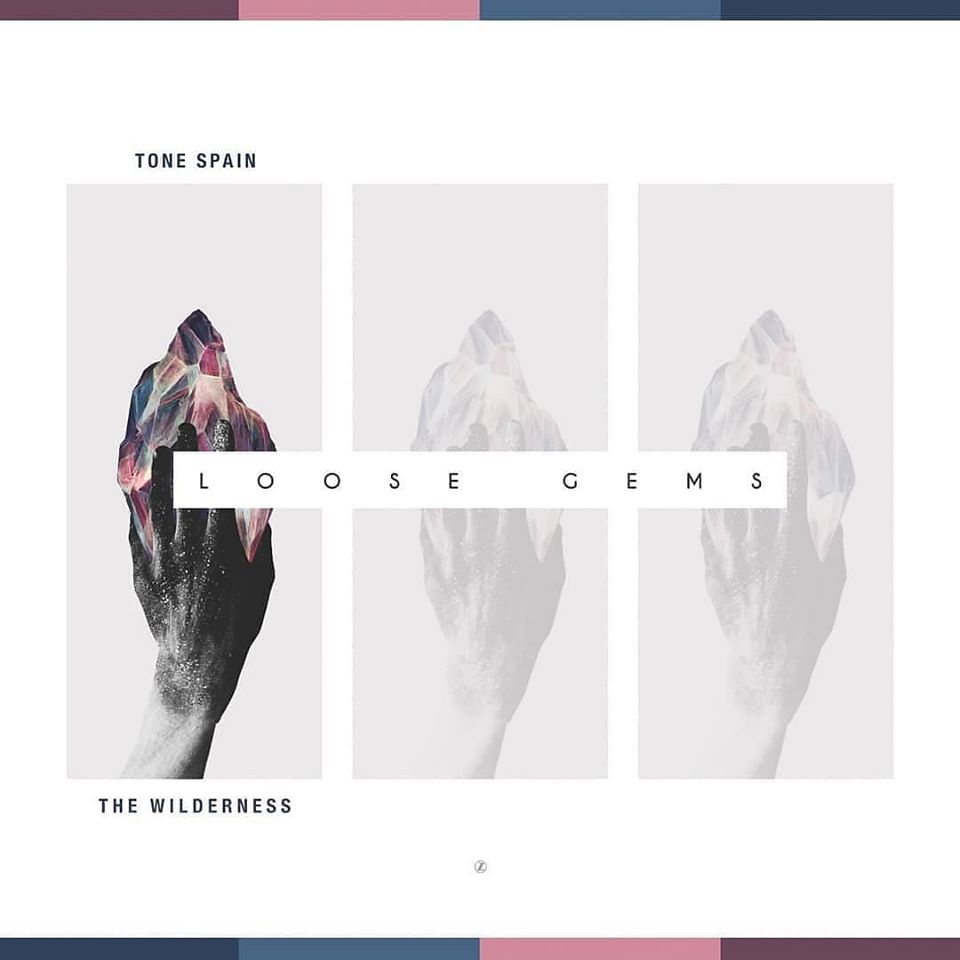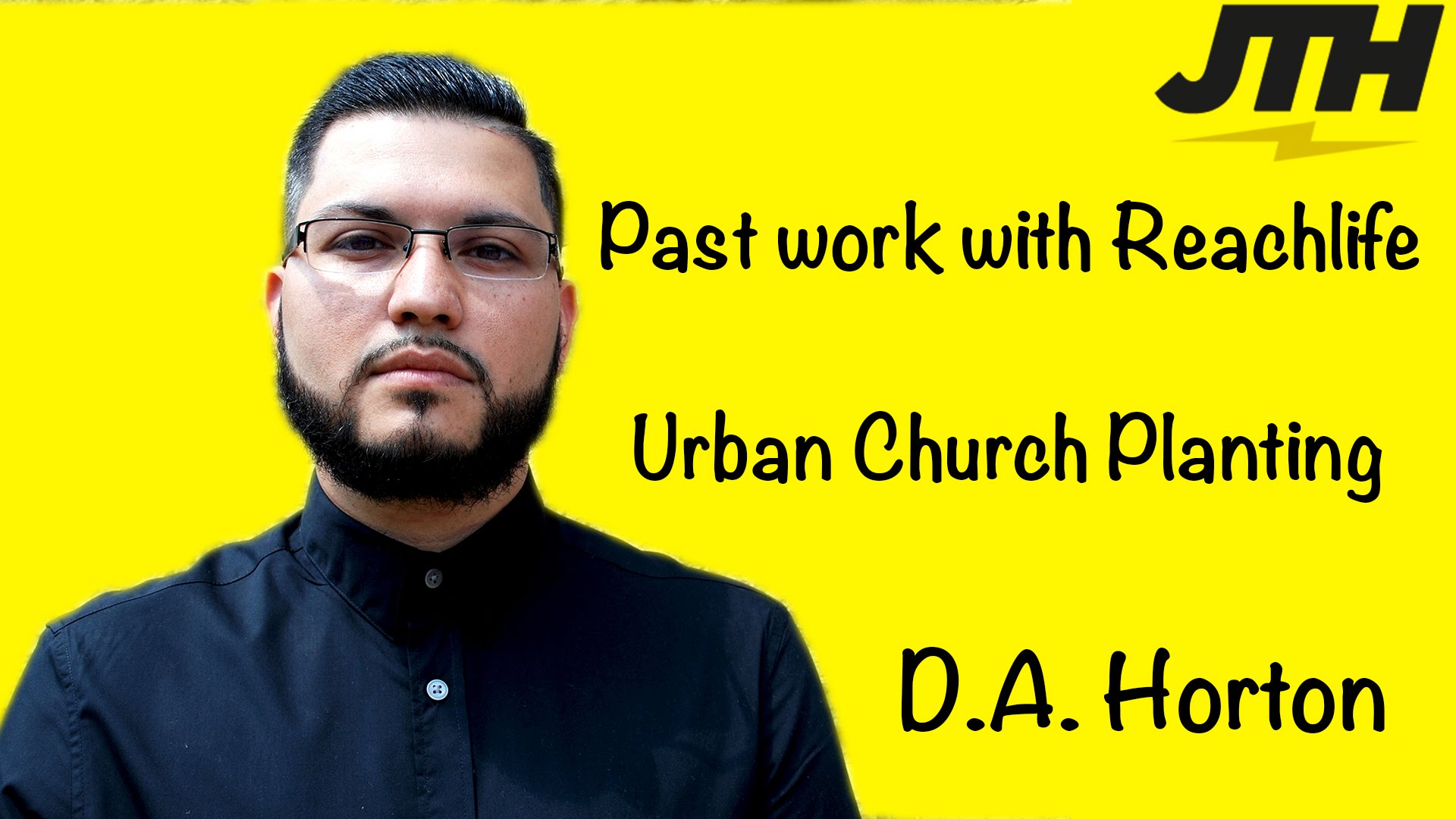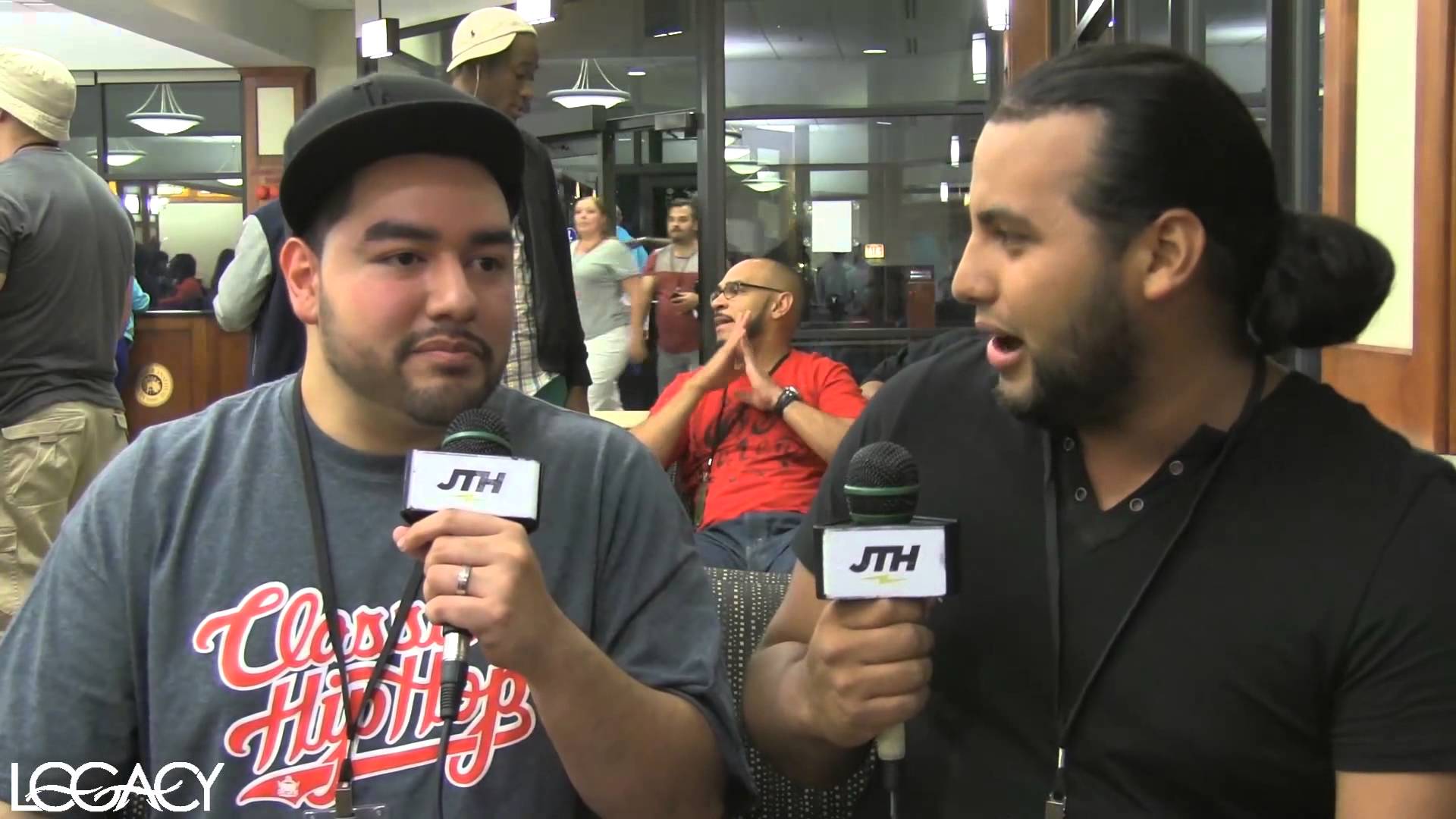“Tone Spain is a servant of Christ. I’m here to serve out the will of God for my ministry, to win souls, and to make disciples.”
Having grown up on the North side of Philadelphia, Tone Spain was always surrounded by hip-hop culture, listening to artists such as Beanie Sigel and Jay-Z. “It’s just ingrained in how we live. I would say it had mainly a negative impact, but there were some positives like camaraderie and brotherhood.”
He started rapping at age seventeen, inspired to start by his younger brother, who had begun rapping a couple of years earlier. Enjoying punchline rap “with the metaphors and the similes, I just started writing down punchlines, and then the rest is history.”
From a young age, Spain and his siblings learned about Christianity from their mother, but for him, “it kind of went in one ear and out the other.” He was raised in the streets, and in high school, he got involved in criminal activity. At age twenty, he was placed in jail for two months pending a trial for serious charges. One day in jail, several Muslims spoke to him about their beliefs, “and that’s when I felt the Holy Spirit tugging at my heart. Everything that the Islamic guys were speaking to me, I didn’t agree with, but I didn’t understand why.”
The same day, a counselor came with bibles, and Spain asked for one. He started reading the Gospels and after reading the fourth Gospel, the Gospel according to John, he “was completely convinced that Jesus was Lord and from that day forward, I walked with him.” Not being able to afford a lawyer, he was fortunate in that his case was taken up by a law firm that defended him pro-bono.
“The lawyer that I got fought the case and got me a really good plea deal, and I was able to serve a year of probation, out living my life and honoring God.”
After this, he decided to stop rapping and started going to a church. One evening after attending a bible study, Spain received a ride home from the church’s Music Minister. Explaining how he stopped rapping because of its harmful effects and messages, the Music Minister “was convinced that I should reroute my purpose and use it for God’s glory.” The idea seemed absurd to Spain, but the Music Minister invited him to his home to visit his studio. “We ended up making two or three songs that night, and my stint in Christian rap had begun.” Becoming passionate about sharing his faith, Spain would often walk around the neighborhoods of North Philadelphia, rapping, and evangelizing.
Last month, Tone Spain released his second album, Loose Gems: The Wilderness. He loves speaking with people about how they can apply the words of the Bible in their own life and “wanted to combine what would seem to be random thoughts and bring them all together and give people little nuggets of applicable wisdom.” He says that in the hood, when people share pieces of wisdom, they often use the terms gems or jewels to describe them.

The album begins with “Badlanz,” a nickname that his neighborhood in North Philadelphia has due to its reputation for the prevalence of drugs and crime. He discusses how he and others in his community often face judgment at churches, regardless of how faithful and knowledgable of Christian beliefs they are. “It’s almost a subconscious way of relegating him and saying, ‘There’s no way that God could actually have shown him that. There’s no way that he could understand these scriptures to that degree.'” He hopes that this song will break down that stigma.
“It’s a play on words where they said about Jesus, ‘Can anything good come from Nazareth?'”
“Rolling Stoner” is the oldest song on Loose Gems, having been started in summer 2017. It was provoked by considering how his children do not have much of a relationship with his mother. “Even now, it’s something that I struggle with. You would hope that your children would know your parents, especially the one who was there for you.” His hesitancy for his mother’s interaction with his children was caused by her long-term drug addiction, though she has now been drug-free for about a year. The song is a narration of his relationship with his mother, from his childhood to the present. He would like to see his children have a closer relationship with their mother, but one obstacle is that his family now lives in Kentucky, while his mother has remained in Philadephia.
The album continues with “Maranatha,” featuring Elder DJ Ward. The title comes from a biblical word that is used to say “the Lord is coming” or “O, come Lord” and inspired Spain to write a song encouraging listeners to go all-in for living out their faith. He hopes that those who hear the song will be motivated to “always be submissive to God in every way, understand our place and the sacrifice that the God of the universe made.”
“Came To Win” addresses the case of ordinary people whom he has received a lot of criticism from. Throughout his walk of faith, Spain has sought to overcome these influences. “In my first twelve years of being a believer, I’ve dealt with so much opposition, you wouldn’t even believe it.” Many people have told him that his ministry would not grow or even that it would fail. “It’s awesome to see God work in spite of those people. I came to win souls and am not about anything else.”
Tone Spain described the song “Bar Mitzvah: Shnayim” as a fun track to make. Though he had been rapping for Christ for several years, he had been unaware of the Christian hip-hop scene until 2013 when he heard Lecrae’s original Church Clothes mixtape. “I found out, ‘Hey, it’s a whole community of Christian artists who have something to say.’ Naturally, I was inquisitive.” His perception of Christian rap as a youth and young adult had been that it was corny, but that view quickly changed. “I’ve always wanted to be the opposite of [corny.] I’ve always wanted to display that God has very talented people in Christian rap.”
“Fal$e Profit$” was written after hearing the controversy over Datin’s July 2018 song, “CHH Ain’t Dead.” Spain describes his song as one sharing his perspective on subjects that Datin did not mention in his song. Though much of CHH is alive, Spain believes that many CHH artists may not be alive “in spiritual terms. I wanted to address the deadness that gets a pass at times in CHH.” He has observed that as some Christian hip-hop artists have become famous, many others have been removing spiritual language and emphasis from their lyrics. In addition, he has personally witnessed artists failing to live out their faith.
Loose Gems: The Wilderness concludes with “Blood of the Prophets,” which recognizes how the New Testament closely follows and fulfills what was written in the Old Testament. Spain notes how many Old Testament prophets were hated, and some even died as martyrs “because they had a word from God that wasn’t culturally accepted.” Many of these prophets received this animosity because of their claims that the Israelites were not living in accord with God’s will and needed to repent. The song compares the similarities between these prophets and the martyrs of the early church, such as John the Baptist, Stephen, and Jesus’ Apostles. Spain believes that though prophets can be hated and killed, God’s salvation story will always continue with more people spreading the word.
“I hope that people walk away from my album compelled to pursue Jesus and dig into Scripture, to study and apply it to their lives.”
Outside of music, Tone Spain loves to play basketball, disciple young people in his community, and spend time with his family.
Follow Tone Spain on Facebook, Twitter, and Instagram.
Get or stream Loose Gems: The Wilderness here.





